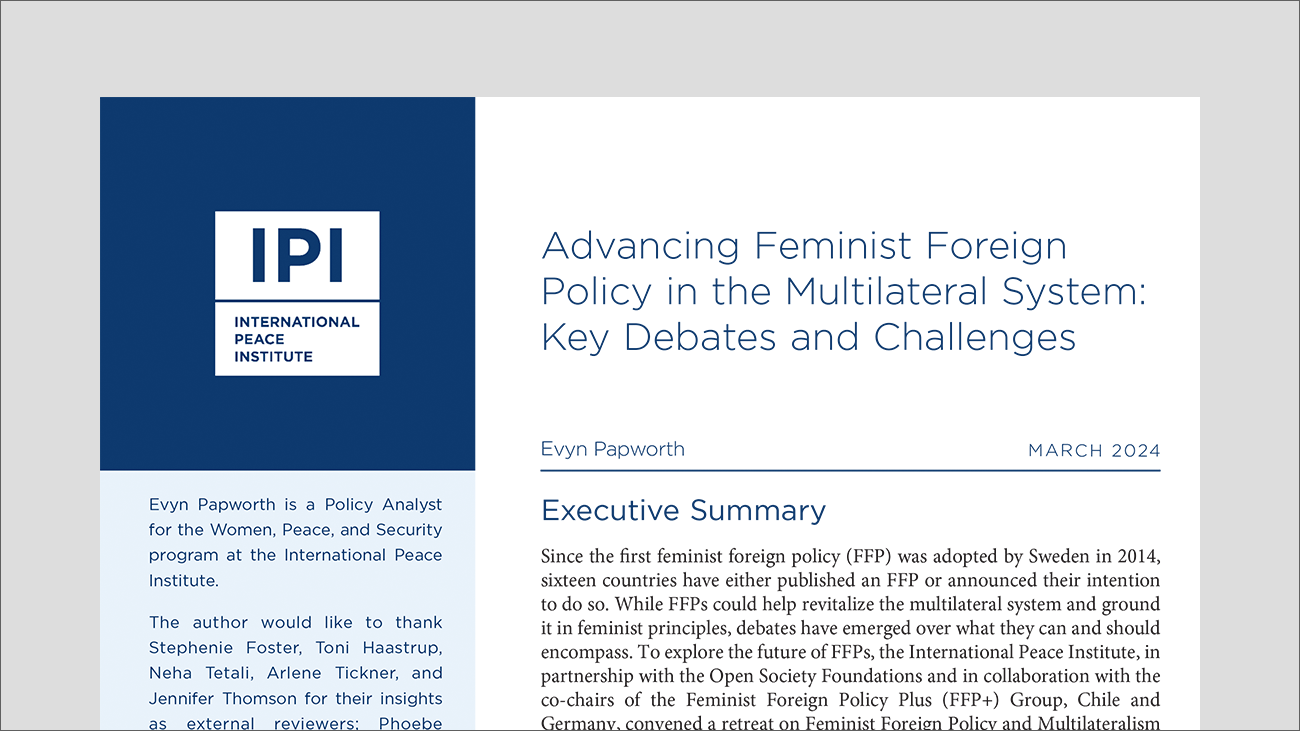
Since the first feminist foreign policy (FFP) was adopted by Sweden in 2014, sixteen countries have either published an FFP or announced their intention to do so. Some proponents of FFPs have indicated that these policies can be a way to democratize and transform multilateralism, integrating feminist approaches and principles into multilateral institutions and leading to more inclusive and equitable outcomes. This requires seeing FFPs as not just a “women’s issue” but also as a way to reinvigorate an outdated and inequitable system through transformational change and the interrogation of entrenched power dynamics, including in areas such as trade, climate, migration, and disarmament.
One obstacle to realizing the potential of FFPs is that there is no single definition of feminist foreign policy. Part of the challenge is that there are many interpretations of feminism, some of which reflect a more transformative, systemic approach than others. Ultimately, there is no single way to “do” feminism, and approaches to FFP should, and will, vary. If FFP is to survive and grow, it will encompass contradictions and compromises, as with all policymaking, and civil society and member states will have to collaborate to advance feminist principles in the multilateral arena.
To explore the future of FFPs, the International Peace Institute, in partnership with the Open Society Foundations and in collaboration with the co-chairs of the Feminist Foreign Policy Plus (FFP+) Group, Chile and Germany, convened a retreat on Feminist Foreign Policy and Multilateralism in July 2023. Drawing on insights from the retreat, this paper discusses five ongoing debates that FFP-interested states should meaningfully engage with:
- Militarization, demilitarization, and the root causes of violence;
- Global perspectives and postcolonial critiques;
- The branding and substance of FFPs;
- The domestication of FFPs; and
- Accountability and sustainability.







